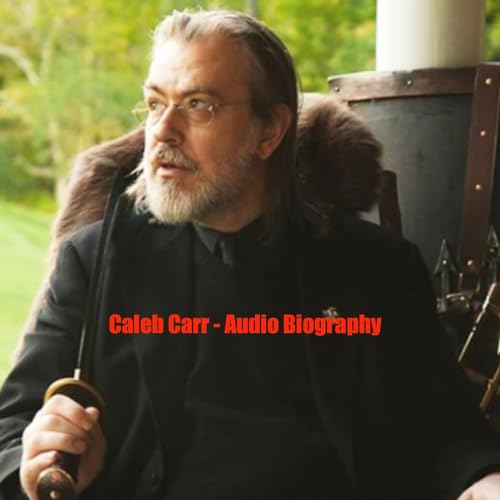Caleb Carr was born on August 2, 1955, in the vibrant and culturally rich Manhattan, New York. His early life was shaped by his parents' artistic and literary pursuits, which undoubtedly influenced his own path as a writer and historian. Carr's father, Lucien Carr, was a central figure in the Beat Generation, a literary movement that emerged in the 1950s and revolutionized American literature. Lucien's close friendships with iconic writers such as Jack Kerouac, Allen Ginsberg, and William S. Burroughs exposed young Caleb to a world of intellectual curiosity and creative expression. Lucien Carr's own life was marked by a tumultuous event in his youth. In 1944, he was involved in the murder of David Kammerer, an older man who had been obsessed with him. Lucien claimed self-defense, and with the help of his friends, including Kerouac and Burroughs, he disposed of the body. This incident had a profound impact on the Beat Generation and later inspired fictionalized accounts in novels like Kerouac's "The Town and the City" and Burroughs' "Hippos." Caleb's mother, Francesca Von Hartz, was an accomplished writer and editor who worked for many years at the prestigious "The New Yorker" magazine. Her influence on Caleb's literary development cannot be overstated. Growing up in a household where literature and writing were central to daily life, Caleb was encouraged to explore his own creative interests from a young age. Despite the intellectual and artistic stimulation provided by his parents, Caleb Carr's childhood was not without its challenges. When he was just eight years old, his parents divorced a life-altering event that undoubtedly left its mark on the young boy. Following the divorce, Caleb primarily lived with his mother on the Upper East Side of Manhattan. This experience of navigating between two households and dealing with the emotional aftermath of his parent's separation likely contributed to his keen understanding of human psychology, a theme that would later permeate his writing. Carr's upbringing in New York City also exposed him to a diverse array of cultures, ideas, and historical influences. The city's rich history, particularly that of the late 19th century, would later serve as a backdrop for some of his most famous works. Growing up in a metropolis that has played such a significant role in shaping American history and culture undoubtedly fueled Carr's passion for exploring the past and understanding its impact on the present. In his formative years, Carr's love for reading and writing was nurtured by his parents and the intellectually stimulating environment in which he was raised. His father's involvement in the Beat Generation and his mother's literary career provided him with a unique perspective on the power of words and storytelling. Despite the challenges posed by his parents' divorce, Carr's early life laid the foundation for his future success as a novelist, historian, and screenwriter. As he grew into adolescence, Carr's interests began to crystallize, and his passion for history, particularly military history, became increasingly apparent. This fascination would later manifest itself in his writing, as he seamlessly blended historical fact with fictional narratives to create compelling stories that captivate readers. Carr's early life and family background were instrumental in shaping his identity as a writer and thinker. The exposure to literary genius, the challenges of his personal life, and the richness of his urban upbringing all contributed to his development as a storyteller and historian. These formative experiences would later inform his work, imbuing it with a depth of understanding and a keen insight into the human condition that sets him apart as a unique voice in contemporary American literature. Education and Early Career After completing his secondary education, Caleb Carr enrolled at the prestigious Kenyon College in Gambier, Ohio. Founded in 1824, Kenyon College is known for its strong liberal arts curriculum and its commitment to fostering intellectual curiosity and critical thinking. It was here that Carr chose to focus his studies on history and military history, two subjects that would remain central to his interests and work throughout his life. Carr's time at Kenyon College was marked by academic excellence and a deepening passion for understanding the past. He immersed himself in the study of various historical periods, with a particular focus on military conflicts and their impact on society. His coursework exposed him to a wide range of historical sources and methodologies, honing his skills as a researcher and analyst. After graduating from Kenyon College in 1977, Carr returned to his hometown of New York City, eager to embark on his career as a writer and historian. He began working as a freelance writer and researcher, contributing articles to a variety of publications that aligned with his interests. Among these were "Military History Quarterly" and...
copyright 2024 Quietr.Please
 May 28 202422 mins
May 28 202422 mins
